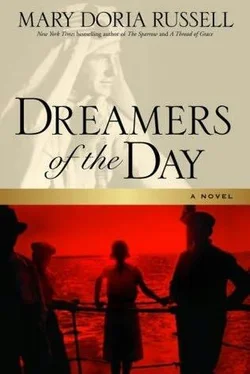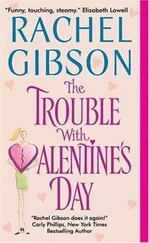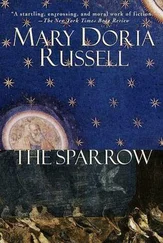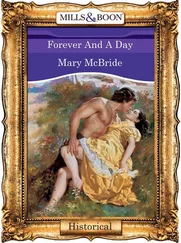The river is locked, its flooding controlled with immense dams built by the English to regulate the flow of water but, even now, Egypt’s farms depend on the river and its silt, as they have since long before Joseph interpreted Pharaoh’s dreams.
Whenever the steam engine quiets, its thrum is instantly replaced by the creak and bind of wooden cogs. Water must be raised to reach the fields along the Nile. Oxen circle hour after hour, turning the sakieh ’s great wooden sprocket, driving wheels that operate belts that carry buckets into the river. Watch buckets lift water up and over the bank, dumping it into irrigation trenches. The friction load of this mechanism is enormous. It makes a rhythmic music you can hear all night long, while the steamer is tied up along the bank.
Dance to that music in your little cabin.
Because you want to.
Even older than the sakieh: the rhythm of the shaduf. Imagine a deep trench cut at right angles to the river, with two stout poles astride it, driven into the earth. Between the poles, a rigid bar rests on a fulcrum. The bar rises and falls, rises and falls … A heavy ball of Nile mud is formed around its short arm, a pottery jar lashed to the other end. A single man—thin, nearly naked, too poor to own an ox—can lower the bucket into the river. It quickly fills and he raises it, using the mud ball as a counterweight, then tips the water into an irrigation ditch six or seven feet above the river. This he does over and over, for hours on end. Farther inland, the operation is repeated, and then once more at a greater distance from the river. By working these shadufs relentlessly, three brothers can water a large field.
Their work never ends, night or day, and it has been done by fellahin in just this way for five thousand years. You can see their ancestors’ portraits on the painted walls of pharaohs’ tombs: the same deep bronze skin, the straight black brows, the lushly fringed dark eyes. The fellahin live in a circling world where time revolves but never rolls. They know the future by remembering the past. No event is unique. Every event is a reenactment.
I was glad to live in that timeless world, forgetting the past, ignoring the future. I was afloat in sensations that were no less sweet for being commonplace, laughing and weeping when my own high cry joined that of the curlews amid sounds of the river, and the thrumming of the engine, and the relentless beat of the shaduf.
My happiness was pure, and remorseless.
Each morning at seven, we were awakened by a boy who delivered cups of tea to our bed, with two sweet crackers on each side of the saucers. A brass bell rang at eight a.m., summoning passengers to the dining room, where breakfast awaited. At one p.m. and again at eight in the evening, the bell rang for luncheon and dinner. Each meal was served in courses, with half a dozen changes of plates and glassware and cutlery.
The crew bought all our supplies along the river: fresh bread and fresh fish, poultry and lamb, vegetables and rush baskets full of the tiny eggs that tiny Egyptian chickens laid. In the evenings, the steamer was tied up, its engine quiet. Passengers were free to walk along the bank or to sit and watch the river turn purple as the sun set fire to the western sky. First singly and then in battalions, stars revealed themselves in the clear desert air. They burned with a brilliance I had never seen before and never would again.
We stopped to explore Amarna, where the strange pot-bellied Akhenaten’s worship of the sun flared up and died out with the pharaoh himself. We marveled at the Valley of the Kings, surrounded by steep cliffs and honeycombed with tombs chiseled from the limestone with nothing more than a carpenter’s square, a plumb bob, and a piece of string to guide the workmen.
The graves, of course, had long since been emptied of their treasure—gold amulets stripped from the mummies’ linen windings, the papery corpses sold for firewood or as curiosities. The walls, however, were still marvelous, painted in dazzling detail with scenes that were familiar to me now: waterfowl amid papyrus reeds and lotus blossoms; flop-eared donkeys laden with baskets of ducks and chickens; peasants grinding flour for flat bread, or carrying jars of beer, or honey, or bright red tamarind juice.
“These scenes are maps, really,” Karl told me. “The walls of a tomb are meant to help the dead find their way in the afterlife. The embalmers had no more than seventy days to make the body ready for its journey. If the pharaoh didn’t find his way by then, he would wander as a ghost forever.”
Across the river, we visited Luxor, of course, where the great temple of Karnak took two millennia to build and two millennia to go to ruin. There one sees the history of Egypt graven in stone, from its glory days as a great empire until it sank in status to a mere province of all-powerful Rome, itself long gone. Avenues of broken sphinxes still line the ancient road. Once upon a time, they witnessed stately processions that bore the mighty dead to their temples. Today, children climb on the sphinxes, playing hide-and-seek among them, while the pharaohs rest in glass cases to be stared at by impious barbarians from the West.
One morning, our first stroll around the deck with Rosie was interrupted by a BANG!, a jolt, and a shriek of metal. An Arab waiter was passing just then, carrying two large breakfast trays. Thrown off balance by the shock, he lost his grip. Teacups, bottles of Evian, plates, eggs, toast: everything tumbled onto the engine room, its roof open to the deck above it. With a seemingly endless crash and smash, bits of glass and china were ground into the works. Nobody moved or said a word until the cascade had run its course.
The waiter, nearly paralyzed, slowly looked up and met my eyes. It was a moment of human connection. Try as we might to look horrified, our dismay was quickly subverted by stifled laughter. With guilty looks over his shoulder, the young man put a finger over his lips. We nodded our conspiracy, and he scuttled away, hoping no one else had seen him feed a disastrous meal to the machinery below.
Karl went off to see how much damage had been done. I leaned over the deck railing, watching fishermen in feluccas put out from a nearby village. One by one, they reached their favored spot and flung out circular webs, beating the water to drive fish toward the nets.
Oils, I was thinking. Keep your oils! This is a watercolor world, all haze and mist.
“A piston rod snapped,” Karl reported on his return. “The crockery made it worse. They’ll need most of the day to fix the engine.”
He stood behind me. I moved against him, shameless in the sunlight. “What are they singing?” I asked, raising my chin toward the feluccas .
“A song for the fish. ‘Be careful! We are poor! We are coming to get you!’ ” He moved to my side, at the railing. “Would you like to join one of them? The river is entirely different when you are close to the surface.”
“If we leave Rosie in the cabin, she’ll drive everyone crazy, barking. Can she come with us?”
“I’ll make it part of the package.”
He raised his arm and waved until he caught a fisherman’s attention. The negotiations, as usual, took place in shouts. A deal was reached. Ten minutes later, the sailboat had drawn up beside the steamer.
It was smaller than I’d anticipated. The fisherman grinned gummily and beckoned, the music of his Arabic recognizable to me as some variant on: Yes, yes! Allah-hu akbar! Watch your step!
“Allah is great,” I agreed. “It’s the sailboat that worries me. Will it hold all of us?”
“ Feluccas are built to handle a load of fish,” said Karl.
Читать дальше
